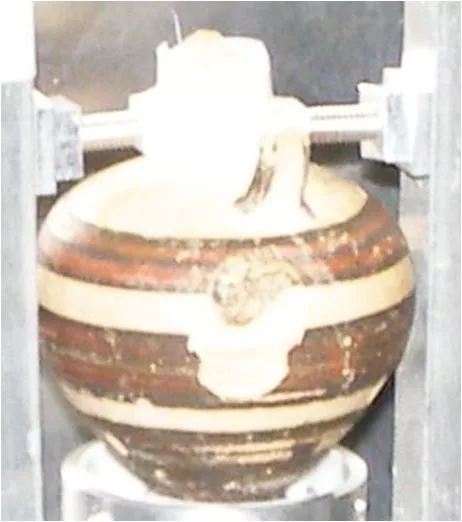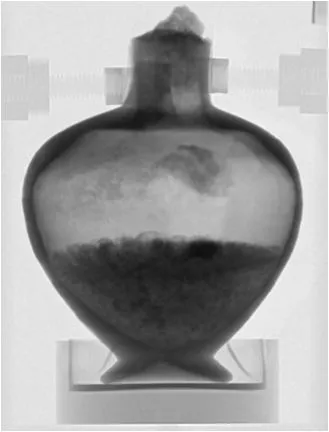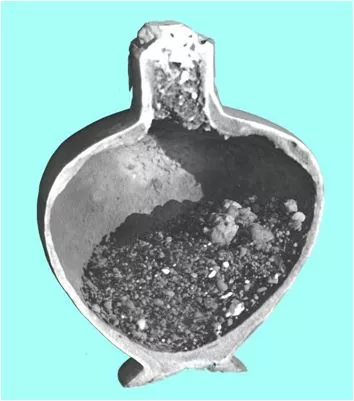Since NINMACH 2013 is the first event that addresses both neutron scientists and archaeologists and conservators, we urgently need an estimate of the number of participants.
Please register with your name and email address as early as possible to help us plan the conference.
In the recent years, modern scientific methods have led to a wealth of information in Archaeology and Cultural Heritage Research concerning the composition of artefacts both on a molecular level and on the mechanical built of objects than cannot be dismantled without destroying them. X-ray methods from radiography to fluorescence have become widespread, but the potential of neutron methods has barely been tapped.
Neutrons easily penetrate thick layers of metals, even lead, while revealing organic material like wood, leather or bones in sealed metal or stone containers. Two- and three-dimensional imaging provides visual information, while neutron activation analysis delivers elemental composition information, and neutron scattering reveals alloys and textures.
With modern detectors, Neutron Imaging can even be performed at low-power research reactors; the application for cultural heritage research gives rise to new uses to elder small research reactors throughout the world, which is explicitly supported by IAEA.
NINMACH addresses archaeologists and conservators from museums and universities and aims to illustrate the potential of neutron methods in cultural heritage research.
Talks and posters will be presented by physicists and archaeologists who have already employed neutron methods successfully; attendance is explicitly recommended for scientists who are completely new to neutron methods and want to learn about the possibilities at neutron sources throughout the world.
The conference will be held from Sept. 9 to 12, 2013, at the Garching campus of Technische Universität München, Germany.
The conference language is ENGLISH.
Refereed Publication of papers will be in a special issue of the English and German language journal "Restaurierung und Archäologie" of the Römisch-Germanisches Zentralmuseum in Mainz, Germany. Abstracts will be searchable online. http://web.rgzm.de/655.html
Scope
Subjects (methods):
- Neutron Imaging: Radiography and Tomography
- Autoradiography
- Activation Analysis
- Prompt Gamma Activation Analysis
- Neutron Resonance Capture Analysis
- Large Object Imaging with Fast Neutrons
- Advanced Imaging Methods: Bragg Edge Scanning, Phase Gratings, Texture
- Scattering Methods
Archaeological subjects:
- Numismatics (Greco-Roman coins and others)
- Textile Archaeology
- Organic residues on archaeological metal objects
- Non-destructive characterization of metal structures
- Autoradiography of paintings
- Statuettes and Figurines
- Ceramics
- Wood conservation, impregnation with liquid consolidants
- Fossils
Neutron sources
- FRM II - Forschungsneutronenquelle Heinz Maier-Leibnitz (FRM II), Technische Universität München, Germany
- PSI - Paul-Scherrer-Institut, Villigen, Switzerland
- HZB - Helmholtz Zentrum Berlin (Formerly Hahn-Meitner-Institut), Berlin, Germany
- ISIS Rutherford Appleton Laboratory, Harwell, United Kingdom
- ANSTO - Australian Nuclear Science and Technology Organisation, Sydney, Australia
- MCNRC - McClellan Nuclear Radiation Center - University of California, Davis, USA
- NIST - National Institute of Standards and Technology, Gaithersburg, USA
- Budapest Neutron Source, HU
International Advisory Committee
- Prof. Rupert Gebhard, Archäologische Staatssammlung München
- Dr. Marie Wörle, Schweizerisches Nationalmuseum
- Dr. Kilian Anheuser, Musee d’Ethnographie de Genève
- Prof. Yoshiaki Kiyanagi , Hokkaido University, JP
- Dr. Eberhard Lehmann, PSI, CH
- Dr. Nikolay Kardjilov, HZB, DE
- Frikkie deBeer, NECSA, SA
- Dr. Winfried Kockelmann, ISIS, GB
- Dr. Ulf Garbe, ANSTO, AU
- Dr. Alexander Gabov, Queens University, CA
- Prof. Dr. Markus Egg (Römisch Germanisches Zentralmuseum Mainz)
- Christian Eckmann (Römisch Germanisches Zentralmuseum Mainz)
Local Organising Committee
- Dr. Burkhard Schillinger
- Dr. Michael Schulz
- Dr. Petra Kudejova
- Elisabeth Jörg-Müller
- Vladimira Vodopivec
- Prof. Dr. Rupert Gebhard


